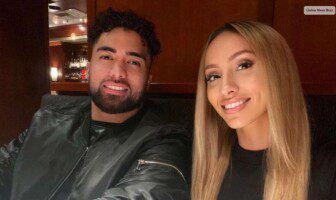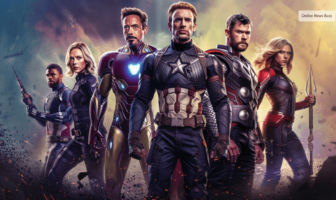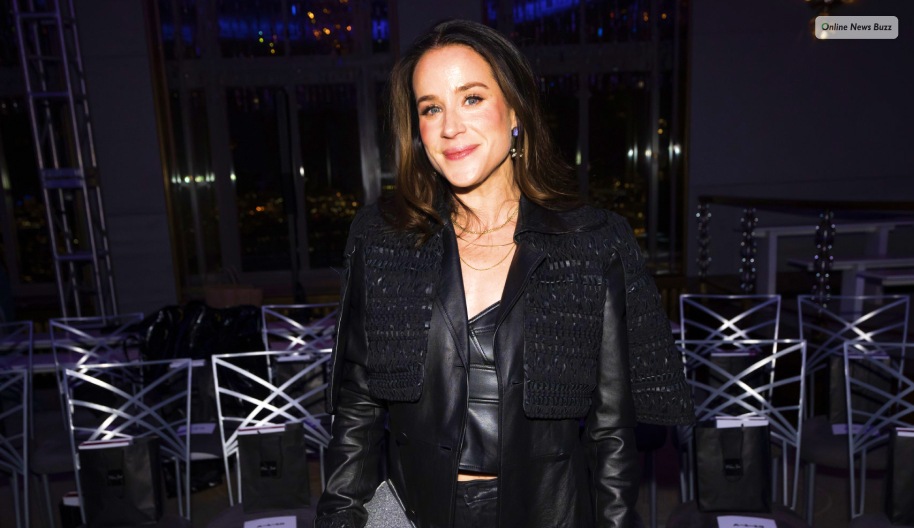
Ashley Biden. First Daughter of the United States of America. Do you know much about her? If not, that’s because she has tried to keep it that way. She is known for keeping a low profile.
In her words, she “never wanted to be in the public eye.”
Now that she is in the eye of the public, without asking for it, she thinks that she has “an obligation in this position, if I can, to amplify the issues and to talk about what truly, truly works.” she is now opening up about her herself no because she wants the attention, rather she wants others to learn from her experiences.
She explains, “It took about two years to get into the groove of being in this position. I’m doing my work as I always have been, but kind of figuring out the role as First Daughter and how I can use it in the most positive way, where it’s not about me, it’s about Americans. And what I’ve learned is, I want to tell the story of others—I want to lift up organizations and share this information.”
Let us dive into the depths of who is Ashley Biden.
Ashley Biden: The Story So Far

Here is the journey of Ashley Biden, from being the first daughter to a strong change maker– something she always was from a tender age.
Early Life
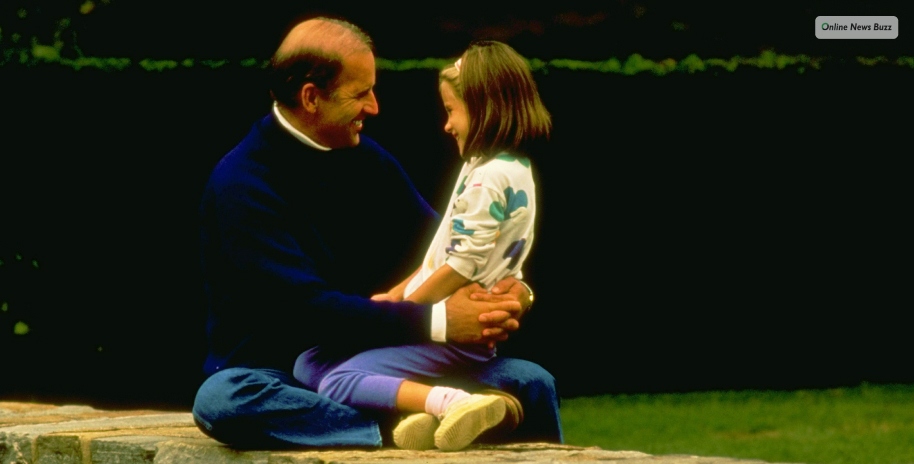
Ashley Blazer Biden was born in Wilmington, Delaware, on June 8, 1981. She is the only daughter of President Joe Biden and First Lady Jill Biden. Asleys is the step-sister of Beau, Hunter, as well as Naomi Biden, who Joe Biden had with his first wife, Neilia Hunter.
Ashley is of English, French, and Irish descent paternal, and English, Scottish, and Italian maternally. She was raised as a catholic and got baptized at St. Joseph’s on the Brandywine in Greenville, Delaware. She went to Wilmington Friends School, a privately held institution run by the Religious Society of Friends.
Since a young age, Biden is known to have stood for a cause. While in elementary school, she had come to know that Bonne Bell, a cosmetics company tested its products on animals. She went on to write a letter to the company urging them to reconsider their policies. She ended up getting her whole school to write to them too. Later she got involved in the conservation of dolphins, which in turn inspired her father to pass the 1990 Dolphin Protection Consumer Information Act.
Biden And The Media

Her latest tryst with the national media happened when her diary went missing, and both the Florida-based perps pled guilty and were being investigated for their crimes. The diary that was left for safekeeping in her Florida home, was sold to Project Veritas, an organization known for hidden-camera videos that often target the liberals.
She has been attacked, along with her family, for allegedly winning a rigged election against former President Trump. Ever since the win, Ashley says, “It’s gotten scary.”
“The violence is beyond unacceptable. Everything that has happened in the past couple of years…it’s not my favorite part of it. “I think it’s human nature when anybody that you love dearly is attacked—wrong stuff is out there that is just complete BS—it does anger you,” Ashley explains.
Ashley’s publicist does not permit her to talk about the diary incident because the investigations are still ongoing, but she is trying to keep herself focused on work. I just wanted to be in the community doing the work that I love,” she describes her current situation. “My life, other than having to be driven around in armored vehicles by the Secret Service, there’s not a lot that’s very different. But [the attention] has always been hard for me.”
Childhood

The first daughter describes her childhood with terms such as “low-key” and “magical time.”
“My family really did keep it super down-to-earth so I didn’t know,” says Ashley. “I knew Dad took the train and was trying to solve the problems of the world. But as a little girl, he’s just Dad.” Joe used to famously take the Amtrak to Delaware every night, and she would run and greet him with her tiny big hug. “I would tell him he smelled like work because of the smell of his suit.”
She tasted the bitterness of being famous at an early age when there would be a lot of chatter around her because if her senator father, “I became aware of it was when I would ride the bus to school, and people would talk about my father,” Ashley says. “The kids would talk about what they would hear their parents say. And when I would get on the bus, they would say things. Some of them kind, some not so kind. And I remember thinking to myself, ‘How do they know my father? I don’t know their father.”
Having a close family helped her back then and is helping her now more than ever. “If my family weren’t so close, it wouldn’t be so hard, but we are,” Ashley describes. “My family is my safe space. So that was the hardest thing: I couldn’t understand how (a) things were said that were not true, and (b) how people could be so cruel just because of whether they liked my father or not. It had nothing to do with me. And I just wanted to shy away from that. I didn’t find it to be healthy for me. I wanted to do my work, know who I was, and feel comfortable in my own skin without the hoopla.”
Education
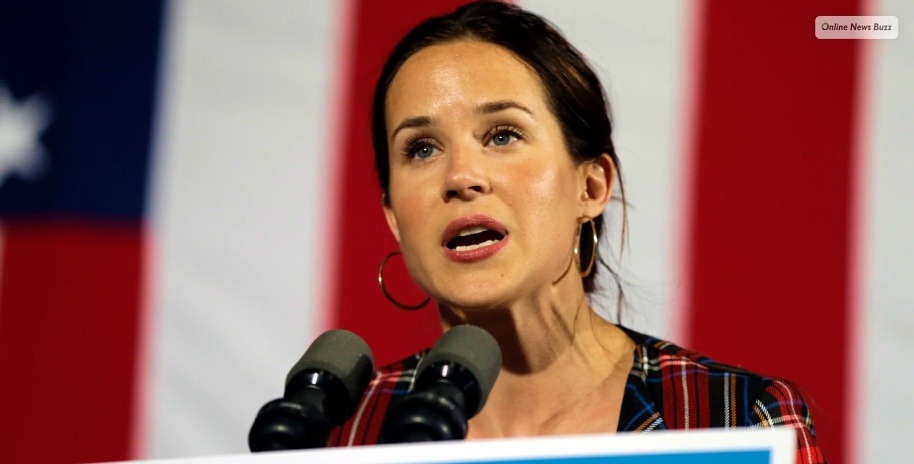
On her choice of career, given her father’s life so far, she says she never felt obliged to devote her life to service. “The only thing my parents always said to me was, ‘Follow your passion. There was never any pressure to go into service, but I saw my mother, a teacher, and my dad, who was working on issues Americans care about.”
In fact, for some time, her parents wondered if she wanted to be an entrepreneur. “They were always like, ‘Oh, you want that? You’ve got to do chores and make some money to get it,’ ” Ashley remembers. “So I used to go to the beach and collect seashells and paint them and go door-to-door selling them as soap dishes.”
She got her bachelor’s degree in cultural anthropology from Tulane University in 2003 in New Orleans. Her roommate in college, now turned best friend, Seema Sadanandan, recalls that one time in college during the Obama years when Joe was vice president. There was a part at the White House, and she said to Ashley, “I was like, ‘Ash, we should totally go to this. This is a big deal.’ To which, Ashley said, ‘But how will we get in?’ ” Seema explains, “That is the perfect example of what she’s like. She is aware of the privilege, but her inclination isn’t to figure out how to use it. She’s still Ash. She still wakes up and texts her girlfriends positive affirmations.”
Career
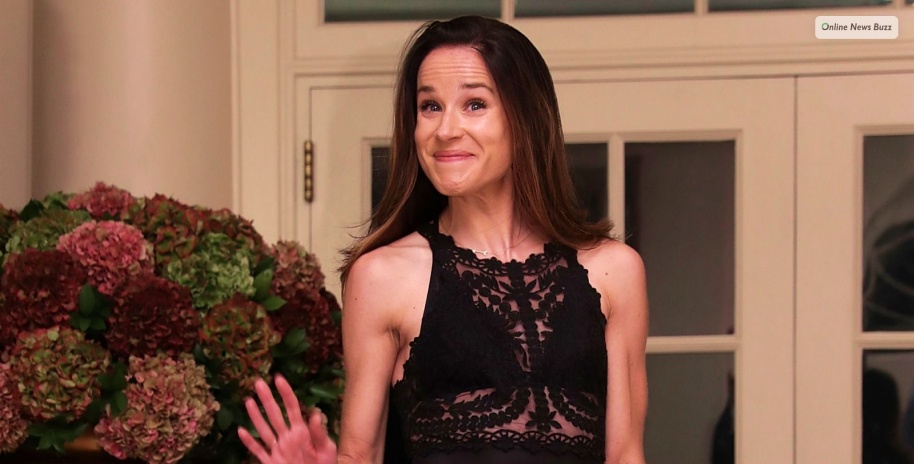
After passing out of college, Ashley joined a clinical support staff at a community mental health clinic for families and children. She held the position for four years. “That’s when I really saw this fee-for-service model for mental health and how ineffective it was,” she says. “It was kind of a conveyor belt—people were continuously coming in, and I didn’t see people getting better.”
She then worked for a year at a foster kids’ group home, helping young adults who were aging out of the program between 18 and 24 find jobs or enroll at an educational institution.
She explains, “I saw all of this unhealed trauma. I could get somebody a job, but if they were dealing with panic attacks, getting to that job was often hard,” Ashley explains. “It was then that I started to say, ‘Okay, something needs to change with [the way we’re treating] mental health. ”
Keeping all this in mind, she enrolled in a part-time master’s program in social work at the University of Pennsylvania. She continued her full-time work during the day. Initially, she had planned to be a therapist, for which she pursued her grad school internship at Seaford House, which is an inpatient group home for children.
“It was very traumatic,” she recalls. “These one-on-ones, I would take home with me. And so then I realized I wanted to do something on a broader level, working in program development and policy reform.”
Ashley took up a job in 2008 at Delaware’s Department of Services for Children, Youth, & Their Families. She helped develop educational and job training programs at mental health facilities and juvenile detention centers.
In 2012 she became the associate executive director and then executive director of the nonprofit Delaware Center for Justice. “My goal really when I came in was effectiveness.”
2012 is also the year Aley married Howard Krein, who is an otolaryngologist and plastic surgeon. They were introduced to each other by her brother Beau. In 2017 she went on to launch an ethical fashion brand in order to raise funds to fight racial and income inequality in the US.
She left the center in March 2019, after seven years, to campaign for her father. “The campaign was important to me. “Everybody doubted us, and we’re here. “I always knew Dad would get here. I always knew. I didn’t know how, I didn’t know when, but I knew he would.”
Future Career

Currently, Ashley is applying for a doctorate at the University of Pennsylvania in clinical social work. She wants to study the neurobiology of trauma and develop her own curriculum. “I think I do have the teaching gene in me.”
Currently, she is consulting for clients like UCSF- Department of Psychiatry and Behavioral Sciences and Boys & Girls Club of America based on the trauma recovery center model.
She is planning to create a wellness space for women in partnership with Mural Arts Philadelphia. It will be a safe space for women to drop by where women can eat a warm healthy meal, access therapies including EMDR and infrared saunas, or hit the treadmill or box and even listen to guided meditation.
“I was able to get great treatment, and so I’ve been able to take some of those things that I’ve learned in therapy and use them as well. EMDR did wonders for me when it came to my brother’s death. Brain cancer is horrendous, and watching someone you love go through that is horrendous.”
She points out how expensive EMDR is and how it is not covered by Medicaid. If you have money and something happens, you can go to the best therapist you can find. That doesn’t happen for people who are living in poverty.”
Ashley is making efforts to bring a trauma recovery center to Philadelphia as well as leading a support group for 15 formerly incarcerated women. She is set to lead another group in March. She gets emotional about the texts she receives. Talking about one woman, she says, “When she opened up to us about her trauma, it made me connect with her even more because I’ve been in a similar situation.
Talking about Ashley, one of the women wrote in an email, “It felt like she understood us, especially me, and it was so real that she made me cry…. I didn’t want to let no one in, but Ashley has this vibe and aura that will capture you and let you give yourself away.”
On being asked what is her mantra in life, she said, “I like the saying, ‘The real flex is staying kind no matter how cruel the world gets.” She explain, “That’s kind of been my mission recently, to stay kind, to stay grounded, no matter how much the world tries to hurt me or my family.”
Wrapping Up
Ashley Biden has tried her best to stay away from the spotlight, but he actions, thoughts, and beliefs have shone through more than her desire to stay in the shadows. Coming from a highly political background, she has the zeal for bringing about change and the grit to stand for a cause.
Being the first daughter has come with its share of pressure, and The Joe Biden daughter is dealing with it diligently.
If you have thoughts to share or questions to ask, please leave a comment. We would love to hear from you!
Read Also:


























